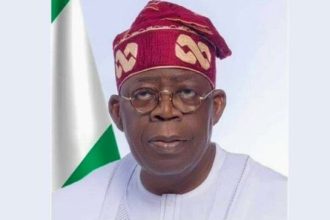Industry players, government officials, and stakeholders in Nigeria’s manufacturing sector convened in Lagos to confront mounting concerns over the nation’s continued reliance on imported raw materials and technology.
The meeting followed new figures showing that over 70 percent of Nigeria’s industrial inputs are still imported, while the sector’s contribution to Gross Domestic Product fell to 9.62 percent in the first quarter of 2025—down from 9.8 percent the previous year.
The Nigeria Manufacturing & Equipment/Nigerian Raw Materials Expo 2025, which opened Tuesday, was jointly organised by the Manufacturers Association of Nigeria and the Raw Materials Research and Development Council with the theme ‘Accelerating Sustainable Manufacturing through Cutting edge Equipment and Technology Solutions.’
The three-day event focused on reversing import dependency and boosting innovation through local production.
According to a statement signed by RMRDC’s Director of Corporate Affairs, Chuks Ngaha on Wednesday, the Minister of Innovation, Science and Technology, Uche Nnaji, who declared the event open, affirmed that for “Nigeria to experience industrial development, innovation and technology must be prioritised.”
Nnaji noted that one of the major planks of President Bola Tinubu’s Renewed Hope Agenda is strengthening the capacity and capabilities of Nigeria’s manufacturing industry to “innovate and produce products that would significantly reduce the country’s over-dependence on importation,” he added.
In his remarks, RMRDC Director General, Professor Nnanyelugo Ike-Muonso, said the expo serves as a hub for technical exchange, policy dialogue, investment matchmaking, and strategic industrial networking, critical components in the drive to reduce import dependency and grow domestic capacity.
He cited data showing that Nigeria imported raw materials worth N4.53trn between January and September 2024. Despite this, the sector’s economic contribution continues to decline.
“These numbers expose a structural weakness.
“We export raw materials in crude form, import them back refined, and in the process, export jobs and value,” the DG said.
He called for Nigeria to embrace the Fourth Industrial Revolution by adopting smart technologies, improving efficiency, and embedding sustainability in its industrial policies.
He also highlighted RMRDC’s Research and Demonstration Plant Complex in Abuja, which houses over 50 pilot plants that process local raw materials like cassava and shea into finished industrial products.
Ike-Muonso further cited the passage of a bill mandating at least 30 percent local value addition for exported raw materials, calling it a critical step toward economic self-reliance.
“This positive development not only makes the challenge of cutting-edge technology for raw material processing both imperative and urgent but holds the ace for providing global investors with the legislative confidence they require to invest in processing technologies and domestic processing of raw materials,” the DG stated.
Also speaking, MAN President, Francis Meshioye, emphasised the importance of adopting emerging technologies to remain globally competitive.
“We are focused on energy-efficient production, smart factory protocols, closed-loop systems, and advanced recycling.
“These approaches not only reduce waste but add long-term value for stakeholders,” he said.
Meshioye noted that this year’s expo reflects the federal government’s “Nigeria First” policy, which aims to deepen local content and support domestic manufacturing.
MAN Director General, Segun Ajayi-Kadir, urged participants to use the event to collaborate, showcase innovation, and discuss practical solutions to the sector’s longstanding challenges.
“This EXPO also affords us an opportunity to examine the state of the manufacturing sector and to co-create solutions to ameliorate identified challenges.
“This is a marketplace of ideas, and we look forward to harvesting innovative solutions to grow the manufacturing sec
tor and develop the Nigerian economy,” MAN DG noted.









